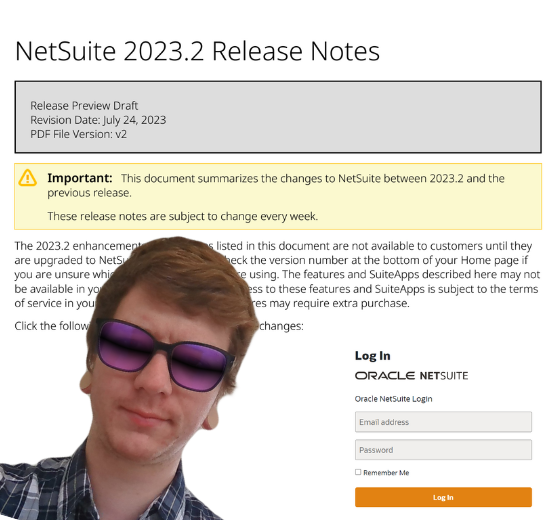Meet Phil Matthews
Welcome to our second team talk during National Careers Week, which is a one-week celebration of careers guidance and free resources in education across the UK. Catch Account Manager Charlie Neal’s video blog here.
We hope our series of Q&As with various members of staff will help young people develop awareness and excitement about their future pathways, but also potentially inspire people who are looking for a change in career. Today we speak to another recent joiner, Phil Matthews, about his career and role here at BrightBridge developing Microsoft Dynamics 365 (D365) solutions for our clients. He also shares some sound advice for any budding software developers.
How have you got to where you are today?
I got a computer when I was 7 years old, and I’ve wanted to work with computers ever since then – back in the days when the only way to get new games was by typing in the code from magazines. That started my enthusiasm for coding, and I’ve had a big interest ever since.
I started my professional career as an IT generalist for a company in the manufacturing industry, doing IT support, web design, and software development, ultimately progressing to IT Manager.
The company had a broad range of business functions, including sales, procurement, marketing, manufacturing and design, so it gave me a good grounding in a lot of business practices that I put into place using a software solution. When we implemented Microsoft Dynamics AX and then later Dynamics 365 Finance and Operations (D365FO), I took a leading technical role in bringing the systems live, particularly on the development side. The technical competencies that I took on as part of these implementations are what have taken me to the natural progression of being a full-time developer for these systems.
Tell us about your role
Typically, I get involved in a project once the solution architect, functional consultant and customer have established the fit gap between D365FO’s out of the box capabilities and the end user’s need. My role is to bridge this gap and as a team we look at the most effective way to achieve success – because there’s always multiple ways of achieving the same outcome – bring in the appropriate technologies, add some bespoke coding and put it into practice.
D365 is constantly evolving with new and exciting cutting-edge technologies and Microsoft is committed to investing in these. That means there are always new concepts to learn, master, and utilise to the benefit of our customers.
Day to day this can take the form of functional changes to code, integration with other systems, data migration, bespoke report designs, or other technical solutions. As the project progresses, we assist with end user testing and training and produce technical documentation explaining how our solutions fit into the existing system. I particularly like the problem solving and analytical side of software development – taking a complex customer requirement and making it reality it is immensely satisfying.
Once a project is live, we assist with any technical support issues and work with the customer to look at requirements for future phases of their software journey.
What kind of person is suited to business software development?
Being a developer requires strong problem-solving skills and because solutions like D365 are constantly evolving, you have to be prepared to keep learning and enjoy a fast-paced industry. Developers certainly need to be curious and like absorbing knowledge, but alongside that, you have to be disciplined and methodical. Everything has to be designed as future proof as possible and it’s crucial we follow Microsoft’s best practices.
As part of the problem-solving process, you need to be able to identify risks. I often play devil’s advocate with myself, asking “how could this go wrong?” so I can ensure all of the safeguards to prevent negative outcomes are built into the architecture.
Despite the stereotype of software developers, it’s critical that you’re a good communicator. A lot of my role involves explaining complicated technical details to people who are often a lot less technical.
Do you have any advice for young people wanting to become a software developer?
You can get lots of tools that you need to start developing as trials or free versions. It’s a cliché, but there’s no substitute for just rolling your sleeves up and getting on with it, so download what you can and play around. You’ll soon know whether you’re hooked and it’s the type of job you can imagine doing. There is so much online content out there showing you how to do pretty much anything, so practice, hone your skills, and go for it.
If you missed our team talks in 2022, you’ll find the last one with Paul from our support team here and this has links to the whole series. In 2023, we also spoke to NetSuite Technical Consultant Jack Ellis and Account Manager Charlie Neale.
Or if you’re looking for a Microsoft Dynamics 365 project implementation or support partner, please call us on 0330 133 5000 or email info@brightbridgesolutions.com.
Keep reading

What is a NetSuite implementation partner? How do you choose one?

Technology fit for total customer service in 2024

Retail and wholesale distribution: how to improve supply chains

Ditching Sage 1000: what you need to know from businesses that have done it

6 ways AI-ready Microsoft Dynamics 365 helps chartered associations serve members

6 retail and wholesale distribution challenges and how NetSuite solves them

The most exciting features in Microsoft Dynamics 365 2023 Release Wave 2

How to manage a new NetSuite Release: one expert's update process

What’s in NetSuite Release 2023.2?

